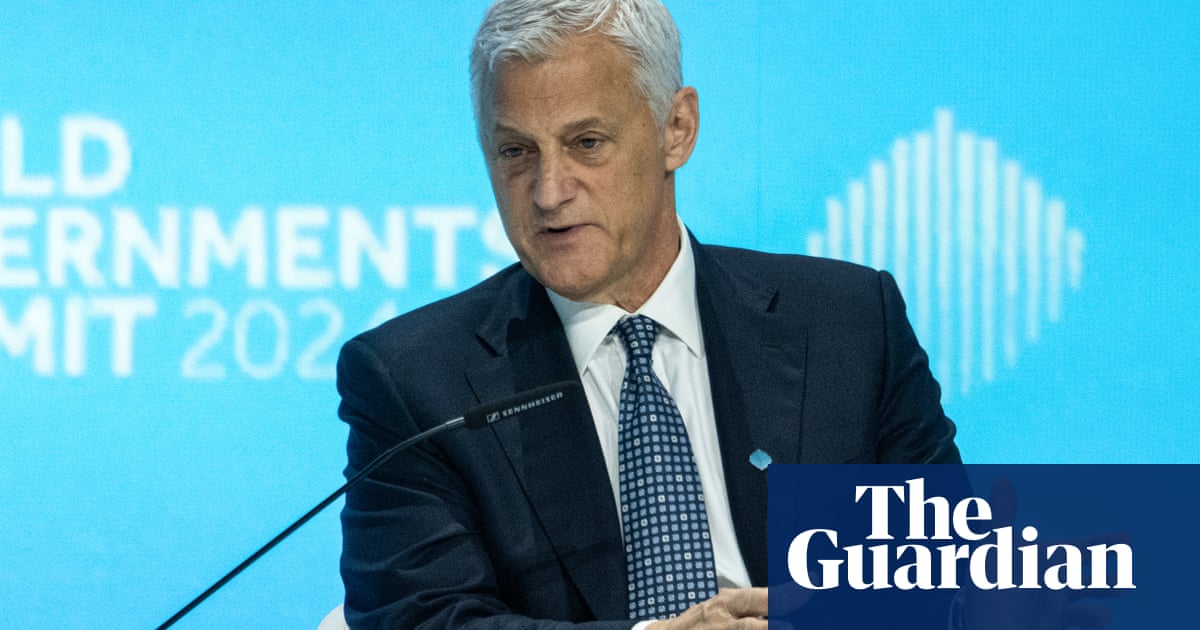
Standard Chartered has handed its chief executive his largest pay package in nearly a decade as the lender reported a jump in profits, despite bracing for up to £1bn in potential losses due to China’s property downturn.
The profit bump helped push Bill Winters’ pay up 22% to £7.8m – from £6.4m in 2022. It is the most he has been paid since 2015.
The London-headquartered bank, which makes most of its profits in Asia, Africa and the Middle East, said annual pre-tax profits rose by 19% in 2023, to $5.1bn (£4bn).
The update saw shares jump 9% by midday on Friday, though Winters said he was “not happy at all about where our shares are trading”.
“The stock price is crap,” he said during a press briefing, adding that it did not reflect the bank’s financial position, including its “extraordinary capital discipline” and cost-cutting efforts.
The growth in profits was due in part to higher interest rates, which allowed it to charge more for loans and mortgages. It said revenue from those interest charges, compared with what it paid out to savers, was expected to grow in 2024 “and beyond”.
The stronger performance helped offset the money that the bank put aside for potential losses. The lender is ultimately expecting a maximum $1.2bn hit linked to its Chinese commercial real estate portfolio, offset by improvements in other parts of the business.
Standard Chartered also took a $153m hit in the value of its stake in China Bohai Bank, as Chinese lenders have become increasingly exposed to bad debts from its property crisis. “There’s some concern that the the property loan sector will impact Bohai and other Chinese banks over the coming quarters and years,” Winters said.
“We have an optimistic outlook for China, economically, although I think it’s going to be a while before they emerge from this very challenging transition.”
The chief executive said the property crisis had shaved at least 2% from China’s annual GDP growth, but that the crisis was now “finding its bottom”. However, he said Standard Chartered would not look at fresh investments in the country’s real estate market. “I don’t think that that market is going to turn around any time soon”.
While Winters saw his pay jump, Standard Chartered’s bonus pool for its bankers fell 1% to $1.6m, although shareholders were handed a final dividend worth 21 cents a share. The lender also announced a $1bn share buyback, putting further cash in investors’ pockets.
This week, its rival HSBC nearly doubled the payout for its own chief executive, Noel Quinn, to £10.6m. It came after the bank reported a 78% jump in pre-tax profits, despite taking a $3bn charge linked to its stake in China’s Bank of Communications, which it bought in 2004, as well as a $200m provision for its commercial real estate exposure.
Investors had previously been assured by Quinn’s comments last autumn that the property market crisis was nearing its end. But the year-end figures spooked shareholders, resulting in an 8.4% fall in HSBC’s share price on Wednesday, its biggest one-day drop in four years.
Asked why he thought Standard Chartered was undervalued, Winters said: “The market finds us complex. They think that it’s probably hard for us to get things done. And they think that we sometimes spread ourselves too thin, over too many products, too many client segments, too many markets. And our response to that is to say first of all, we are going to change the way we work.”
Winters said that under his “fit for growth” overhaul plan, the bank has been reviewing its global footprint. That has involved investing in promising markets such as Saudi Arabia, while closing a number of operations including seven of its African retail businesses, as well as divisions serving the Philippines, Qatar, Oman and Thailand.
“We’re completely focused on addressing the shareholder concerns because we are completely optimistic about our ability to continue to deliver on this plan.”












